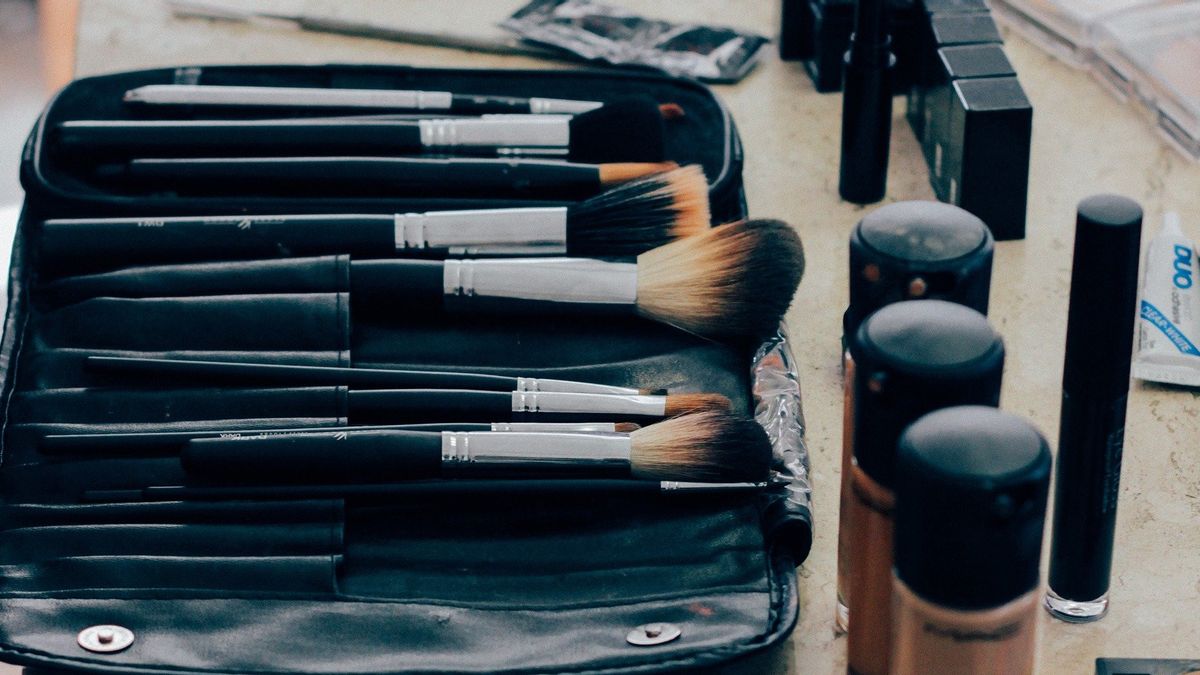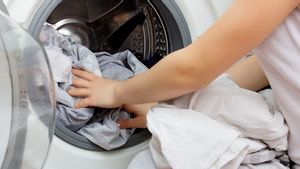JAKARTA - The Ministry of Industry (Kemenperin) encourages the domestic cosmetic industry to utilize local natural resources as raw materials. This step also spurs import substitution and realizes national independence.
Head of the Industrial Research and Development Agency (BPPI) of the Ministry of Industry, Doddy Rahadi, said that according to the mandate of Law Number 3 of 2014 concerning Industry, Indonesia is targeted to become a formidable industrial country.
Doddy said, in order to achieve these goals, a strong, healthy and just national industrial structure is needed. Other targets are industries that are highly competitive at the global level as well as industries based on innovation and technology.
The National Industrial Development Master Plan (2015-2035) states that the pharmaceutical, pharmaceutical ingredients and cosmetics industry is one of the mainstay sectors that receive development priority and plays a major role as the main driver of the economy in the future.
"To increase the capability and capacity of our cosmetics industry, one of the strategies implemented is to optimize technology so that it can produce innovation. This is in accordance with the direction of the Making Indonesia 4.0 road map as our readiness to enter the industrial era 4.0," he said, in Jakarta, Sunday, 2 July.
Doddy emphasized that one of the technical implementation units (UPT) under the BPPI of the Ministry of Industry, namely the Center for Chemistry and Packaging (BBKK) located in Jakarta, has a focus on R&D on natural-based cosmetic or pharmaceutical preparations.
Based on the definition from the United States Food and Drug Administration (FDA), cosmetics are ingredients used on the human body or parts of the human body that function to clean, beautify, promote attractiveness, or change appearance.
"Cosmetic products are currently becoming a trend or lifestyle, and consumers are not only women. In addition, consumers are increasingly fond of skincare products that are back to nature," he said.
The cosmetic industry continues to grow under the pressure of COVID-19According to Doddy, Indonesia has a comparative advantage compared to other producing countries for herbal and cosmetic products such as China, Malaysia and Thailand.
"Indonesia has the potential for medicinal plants to grow in many regions with around 30,000 species of 40,000 medicinal plant species in the world and is also very prospective to be developed because of the potential needs in both local and global markets," he said.
Referring to BPS data, in the first quarter of 2020, the performance of the chemical, pharmaceutical and traditional medicine industries (including the cosmetics sector) experienced a brilliant growth of 5.59 percent. In fact, in the midst of the pressure from the impact of the COVID-19 pandemic, this manufacturing group was able to make a significant contribution to foreign exchange through the achievement of its export value which exceeded 317 million United States (US) dollars in the first semester of 2020, an increase of 15.2 percent over the same period last year. previous.
"This indicator shows that the Indonesian pharmaceutical industry is growing rapidly and is able to provide about 70 percent of the domestic drug needs," he said.
The English, Chinese, Japanese, Arabic, and French versions are automatically generated by the AI. So there may still be inaccuracies in translating, please always see Indonesian as our main language. (system supported by DigitalSiber.id)









